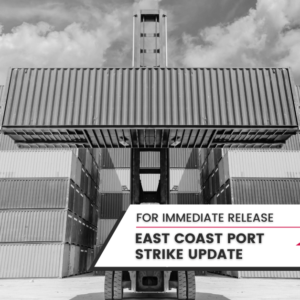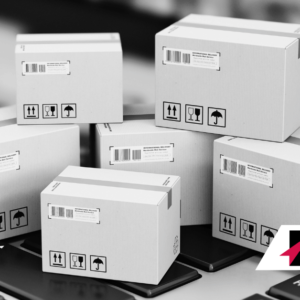The logistics industry is a vital component of the global economy, responsible for moving goods across borders, supporting supply chains, and driving economic growth. However, with its indispensable role comes a significant environmental impact—particularly in the form of greenhouse gas (GHG) emissions. As global concerns about climate change grow, industries like logistics are under increased pressure to reduce their carbon footprint while maintaining efficiency.
In this article, we’ll explore the impact of GHG emissions in logistics, the challenges faced by the industry, and how new technologies are being implemented to help mitigate environmental damage.
The Role of Logistics in Greenhouse Gas Emissions
Transportation accounts for a large portion of global GHG emissions, with the logistics sector—spanning air, sea, rail, and road freight—being a major contributor. The movement of goods, especially over long distances, requires substantial energy, predominantly from fossil fuels like diesel and gasoline. Key GHGs released in logistics operations include carbon dioxide (CO2), methane (CH4), and nitrous oxide (N2O), all of which contribute to global warming.
The complexity of supply chains, with numerous handoffs and modes of transportation, often makes it difficult to streamline operations in a way that minimizes emissions. However, increasing scrutiny from governments, regulatory bodies, and consumers is pushing the logistics industry to adopt greener practices.
Key Challenges in Reducing Emissions
While the logistics industry has made strides toward reducing emissions, there are significant hurdles to overcome:
Fuel Dependency: Despite advances in alternative fuels and electric vehicles, much of the industry is still heavily reliant on diesel-powered trucks, ships, and planes. Transitioning to greener fuels requires both time and substantial investment.
Global Scope: The nature of international trade means that logistics operations span multiple countries, each with its own regulations, infrastructure, and environmental standards. This lack of uniformity can hinder large-scale initiatives to curb emissions.
Cost vs. Sustainability: Reducing emissions often involves high upfront costs, from upgrading fleets to implementing new technologies. For many logistics companies, especially smaller ones, balancing cost and sustainability is a challenging equation.
New Technology Leading the Way in Curbing Emissions
Despite these challenges, the logistics industry is seeing exciting advancements in technology aimed at reducing its carbon footprint. Below are some of the key innovations leading the charge.
1. Electric and Hybrid Vehicles
One of the most promising technologies is the development of electric and hybrid vehicles. Logistics companies are beginning to introduce electric trucks for short-haul and urban deliveries, where charging infrastructure is more readily available. Hybrid vehicles that combine traditional combustion engines with electric power are being used for long-haul transportation, gradually reducing reliance on fossil fuels.
2. Sustainable Fuel Alternatives
The industry is exploring cleaner fuel options, such as biofuels, which are derived from organic materials and produce fewer emissions than traditional fossil fuels. Hydrogen fuel cells are also gaining attention, particularly for large vehicles and marine transport, as they offer a zero-emission alternative to diesel.
3. Route Optimization Software
Advanced software solutions are helping logistics companies optimize delivery routes to reduce fuel consumption and, consequently, emissions. These tools use real-time data on traffic, weather, and road conditions to suggest the most efficient routes, lowering both travel time and fuel usage.
4. Automation and Drones
Automation is another emerging trend in logistics, with self-driving vehicles and drones being tested for deliveries. These technologies have the potential to reduce the need for fuel-heavy trucks, especially for short-distance and last-mile deliveries. Drones, in particular, offer a zero-emission alternative for small package deliveries in urban areas.
5. Smart Warehousing and Energy-Efficient Facilities
Energy efficiency doesn’t just apply to transportation; it’s also crucial in warehousing. Smart warehousing technologies, such as automated storage and retrieval systems (ASRS), are improving the efficiency of warehouse operations, and reducing energy consumption. Energy-efficient facilities with solar panels, LED lighting, and advanced HVAC systems are also playing a role in lowering the overall environmental impact of logistics companies.
The Future of Green Logistics
As the logistics industry continues to evolve, sustainability will remain at the forefront of innovation. Governments around the world are introducing stricter emissions standards, and customers are becoming more conscious of the environmental impact of their deliveries. As a result, companies are making sustainability a core part of their operations to stay competitive and reduce their carbon footprint.
The logistics industry faces significant challenges in reducing greenhouse gas emissions, but with new technologies emerging and global demand for sustainability growing, the future is promising. Electric vehicles, automation, route optimization, and green warehousing are just some of the solutions driving the industry toward a cleaner, greener future.
Your Trusted Partner
At Red Arrow Logistics, we understand the importance of environmental responsibility and are working to integrate sustainable practices throughout our global operations. By doing so, we aim to continue delivering top-tier logistics services while minimizing our impact on the planet.
If you’re looking for a logistics partner that prioritizes both efficiency and sustainability, reach out to Red Arrow Logistics to learn more about how we can help your business thrive in an increasingly eco-conscious world. If we can be of assistance, please email us at info@redarrowlogistics.com or give us a call at 425-747-7914.





